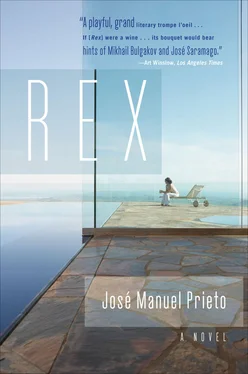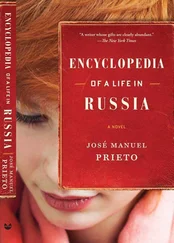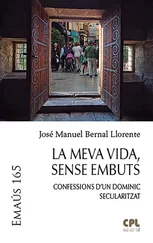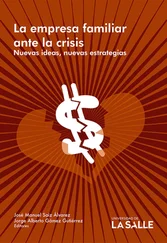1
And this other defect (I do not use that word in relation to the Book as it would be imprecise: there can be no defects in the Book). I’ve often thought, just as another great writer, Milton, once mused, long before the Writer, that a good book is the precious lifeblood of a master spirit, and I have meditated that the flaw in the Book, its one flaw, is to have built its story not around the life and great deeds of a king, but rather around the minor, lackluster life of Swann, a gentleman, and, still worse, around the anemic existence of Saint-Loup and the sterile life of the Baron de Charlus, mere bourgeois gentleman and minor aristocrat, respectively. Neither one a king — not kings. A flaw no scholar of the Book, however great, has observed.
For the subject of a great book … for only the life of a king, placed at the heart of the narrative — though for that to occur the book would have to be constructed very deliberately … Only thus should a literature be brought to a close, the cycle completed: not with the dry and tearless commentaries of the Commentator. In their place, a story tempered from beginning to end around the figure of a king, braided beard beneath eyes of stone: the distinction and gravity of a torso swollen with laws.
I could dedicate years of my life to it. In the noble aim of erasing all trace of the Commentator’s work, so that those years, seen from distant points on the scale, would not remain years of coldness, written by a man who did not fall in love, did not have children, and saw himself brought by the very nature of his stories — their bloodless nature — to a dubious protagonism. Concealed (me, the person who took on the noble task) behind the figure of a king, a sovereign whom I could serve and who, in the Book, embodies all that we know is about to disappear. For there are still people living among us who knew the Writer in his lifetime, men (and women) who were born and lifted up their little hands in their cradles when the Writer was still throwing pages to the floor day by day (as his schoolmaster or private tutor, who was used to it, tells us he did). Gentlemen who chew soft bread with their bare gums today, but once watched him stroll out of the Ritz. This is the moment. A few years more, another generation, and it will be too late.
And a final commentary: let’s imagine, putting ourselves in his place (which I, by the way, would not leave in Balbec, a beach town on the Norman coast, etcetera, but would resituate among the colossal Roman ruins of the city of Heliopolis or Baalbek, far better Baalbek than Balbec), that the Writer had written a Book whose central theme was restoration, the ascent to the throne of a fifth dynasty. Would that not be a superior book? Its pages magically illuminated by the purple glory of such a tale? Would it not simply be a far better book?
Another writer, whom the Writer placed among the greats and mentions in the Book (volumes 1 and 4), a writer who was also unique, felt this to be so. And in his final book he addressed — and placed at the central point in its pages, standing over them — a king. And an act of regicide. King Alexander II, who meets his killer, Alyosha Karamazov. He didn’t manage to write it and it fell to — I was about to say to the better writer, but no, simply to the Writer — to do so. But some deep-seated internal weakness, something, kept the Writer from it. Nothing that had to do with his capacity for writing, his matchless genius. A certain absence, a certain secret failing that kept him from placing a king at the center of his Book, as in the very first book, the one about the king of Uruk.
For something happened to the Writer, something terrible, I suspect. I see it sometimes, as if a light source were illuminating his lines from behind, casting a striped shadow, a fan of light. Which I observe in astonishment, but without managing to discover the secret. There must be something. I’ll find out what it is. Ceaselessly concentrating on the Book, extracting sense and meaning from the text, I will learn it some day and come and tell you what it is, wherever you might be. But — you know? — I’m afraid of discovering something terrible.
2
That same night I went back to her brilliant idea. Refulgent with a thousand sparks and with a thousand crystalline filaments by which to grasp it, a liquid and ever-changing mane in which the fingers of even the clumsiest hand could become entangled. A brilliant idea. That must be understood. An animal, a crystalline jellyfish, hard and supple in the red air of a helium planet. I stood there looking at it, stunned. At her idea.
“Excellent, Nelly, your idea: an excellent idea. I rejected it initially when I first learned what it was, but now I can’t help but see that it’s pure genius: a brilliant idea. A king! No more and no less than the immense, radiant figure of a king. As if taken straight from the Book, Nelly! O infinite subtlety and cleverness! Saved and protected by the legend of a king, a czar! Down there in Spain: a man who could be our king, who sees himself as king of all the Russians, but lives surrounded and threatened by killers who haven’t scrupled to pursue him and threaten the life of his son. Will the nation, will Russia, permit such a thing? Will the very decent and patriotic godfather of the Moscow mafia allow it? Brilliant, your idea: not to flee from the mafia, but go even deeper into it. Only a woman … Nelly!” Fully perceived and understood: precisely how the mafia would accept this project, in the most refined and intelligent way. With quick and supple minds: how much good a king could do for the country, a monarch, and how profitable that could be for them! They’d think it over a bit more before getting into their cars, casting a final approving gaze across the roof of the Mercedes at another elder or godfather, the contained and august gaze of a mafia kingpin, the old-fashioned square lenses of his glasses.
3
A complete imposture; an assembly of nobles (all of them imposters, too), with well-tended beards and cavity-riddled teeth. Perhaps one or two with a noble ancestor, well aware of their own illegitimacy, their role as attendant lords, swelling out a scene or two, convoked to elect a czar, as in 1613, the first Romanov: youthful and weak, malleable and easily abused. Would the public wish for a handsome sovereign, the sideburns and trim beard of the last czar? Though he was actually a grotesque being, one of those prognathous kings, deformed by generations of consanguineous matrimony, the trace of many monarchs in him, mutations, overlong cellular chains accumulated in the nucleus of his being: impotence, lack of will, and incapacity for command. A perfect nullity.
Or would the public heartily approve of and clearly prefer Vasily’s porcine roundness, the evidence of many potatoes boiled and bathed in butter and mugs of beer downed with smoked fish, the hard-boiled eggs whose shells he cracked open against the table, the pickles he fished out of the jar with his index finger? A man they would recognize as one of their own. The mutinous army of gladiators, having fled the circuses and united all together on the peninsula, elects a king who steps from his tent amid huzzahs — and we see that he’s potbellied and wide-shouldered, with the manners of a caveman (a king of clubs? a king of clubs).
And at only a few meters’ distance from your father, Kirpich and Raketa would receive the order from the Muscovite elders and without slowing their pace would begin to flex their legs in preparation for executing the dotted red line of a downward arc. To prostrate before Vasily the very knees that, back in Moscow, had been ordered, instead, to rise violently and plunge into his lower belly. Heads bowed, murderous eyes raised in devotion.
Читать дальше












